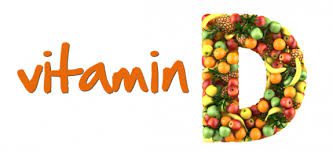 What if there was an easy and inexpensive way to improve your fertility, overall health, and perhaps, improve your chances of IVF success? You would probably jump at the chance to use it.
What if there was an easy and inexpensive way to improve your fertility, overall health, and perhaps, improve your chances of IVF success? You would probably jump at the chance to use it.
No, there isn’t a magic pill with guaranteed success, but infertility specialists, including our physicians at HRC Fertility, have recognized the importance of Vitamin D in both your reproductive and general health. So here are some facts about this vital vitamin, as well as suggestions for either maintaining or replenishing a healthy Vitamin D level.
Vitamins all around us
Generated by the sun and present in the foods we eat, Vitamin D is a steroid hormone that helps our bodies absorb crucial nutrients like calcium, magnesium, phosphate and zinc either through skin exposure or via the intestines. Getting some limited sunshine and eating the right foods, as well as taking a supplement, are easy ways to increase your levels.
Vitamin D is a multi-tasking vitamin
There is a growing body of research demonstrating Vitamin D’s significant impact on bone health, immune function, energy levels and pregnancy outcomes. Additionally, recently published studies have drawn the correlation between sufficient Vitamin D levels and better IVF success rates, though randomized clinical trials are needed to verify the preliminary outcomes.
Vitamin D deficiency is very common
Vitamin D levels peak at puberty and decline subsequently, with a significant percentage of reproductive-age women being deficient. Women who live in both warm and cold climates are affected. Since most people spend their days indoors in offices, this is to be expected. In fact, most of my patients are found to have low levels after testing.
Replenishing Vitamin D levels is relatively easy
Improving Vitamin D levels in our patients is an easy and cost-effective way to improve your health, as well as prepare your body for maximum success with high-tech treatments, such as IVF. There are no down sides to testing and significant upsides to replacement.
If I find a patient is deficient, I recommend a three-step action plan to improve counts.
Exposure to sunlight: . Spending as little as 20 minutes a day in the sunshine may be enough to give your vitamin D levels a boost. Exposure to natural light has also been shown to decrease stress levels and improve mood.
Taking supplements: If a patient is found to be deficient, I recommend aggressive vitamin D repletion for several weeks. Once levels are in the normal range, patient should take a daily supplement to help maintain their levels.
Eating a Vitamin D-rich diet: There are many foods rich in Vitamin D, including:
- Fortified milk or juice
- Fish oils
- Fatty fish, like tuna, mackerel and salmon
- Foods fortified with Vitamin D, including some dairy products, orange juice, soy milk and cereals
- Beef liver
- Cheese
- Egg yolks
- If you search for Vitamin D-rich recipes on the web, you can find lots of delicious, healthy and nutritious dishes to help get you on track for increasing the amount of Vitamin D in your body.
- Have questions? Please let us know. Be sure to talk to your doctor before initiating any treatment plan to discuss which regimen is best for you.
References
• Role of vitamin D in ovarian physiology and its implication in reproduction: a systematic review: Mohamad Irani, M.D. and Zaher Merhi, M.D.
• Influence of vitamin D levels on in vitro fertilization outcomes in donor-recipient cycles: Briana J. Rudick, M.D., Sue Ann Ingles, Ph.D., Karine Chung, M.D., M.S.C.E., Frank Z. Stanczyk, Ph.D., Richard J. Paulson, M.D., and Kristin A. Bendikson, M.D.
• Replete vitamin D stores predict reproductive success following in vitro fertilization: Sebiha Ozkan, M.D., Sangita Jindal, Ph.D., Keri Greenseid, M.D., Jun Shu, M.D.,c Gohar Zeitlian, M.D., Cheryl Hickmon, B.S., and Lubna Pal, M.B., B.S.
• Characterizing the influence of vitamin D levels on IVF outcomes: B. Rudick, S. Ingles,, K. Chung, F. Stanczyk, R. Paulson and K. Bendikson
- http://www.eatingwell.com/recipes_menus/recipe_slideshows/recipes_to_get_more_vitamin_d
